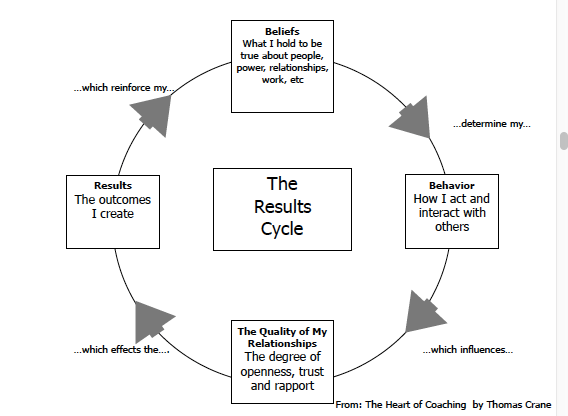 I recall with some amusement the first time I was aware that I was using algebra outside of my high school and college math classes. Like most young students, I suppose, I had been certain I would never again actually use this stuff, but here I was in a crowded mall in central Florida trying to figure out what size carousel would fit in the atrium where Santa was currently holding court, making it impossible for my business partners and me to step off the diagonal measurement. As we contemplated our dilemma, one of them said “Well, we know that A squared, plus B squared equals C squared, so if we can figure out the perimeter dimensions, we should be able to calculate the diagonal”.
I recall with some amusement the first time I was aware that I was using algebra outside of my high school and college math classes. Like most young students, I suppose, I had been certain I would never again actually use this stuff, but here I was in a crowded mall in central Florida trying to figure out what size carousel would fit in the atrium where Santa was currently holding court, making it impossible for my business partners and me to step off the diagonal measurement. As we contemplated our dilemma, one of them said “Well, we know that A squared, plus B squared equals C squared, so if we can figure out the perimeter dimensions, we should be able to calculate the diagonal”.
What?!?!?!!!!
Yep…he dusted off the old Pythagorean Theorem from high school algebra and we figured out what size carousel would fit right there where Santa’s playhouse currently stood.
I got to thinking about that day during a recent coach training class when none of the students could recall a model from their Foundations class. I made a joke about it at the time, but wondered later how much of what we are sharing in our classes feels like algebra to our students. Hopefully not much of it, but then THAT got me wondering how important it is for us to make real world application of the models and principles we share in our classes.
I’ve written in the last several months about the nature of some of the political discourse prevalent in the US over the last couple of years and have observed what I believe is a perfect example of The Results Cycle model that we teach in some of our coach training courses.
In The Heart of Coaching, Thomas Crane describes how powerfully our beliefs influence the results we experience. In a nutshell, Crane says that What We Believe (about people, power, relationships, etc…) determine How We Act and interact with others, which then influences the Degree of Openness, Trust, and Rapport we share with others, which effects the Outcomes We Create….and that those outcomes then reinforce What We Believe.

In other words, the assumptions we make and beliefs we have about others (our worldview, political perspective, etc..) have way more to do with the results we experience (disappointment, delight, support, opposition etc…), than the actual objective content of those outcomes.
In even OTHER words, when we express outrage over the actions of another, it has more to do with our assumptions and beliefs about that person than the actions themselves. And the same is true of positive experiences…. When we approve or support someone else’s actions, it has much more to do with how we feel about them than it does the actions themselves.
Often in our coach training class when teaching about the Results Cycle model I’ll share a story about one of my church experiences which illustrates this phenomenon. Quite a number of years ago I served on an advisory committee in my local church relating to the youth ministry. We had several months earlier called a new Student Minister and she hadn’t hit it off well with the mothers from a couple of the “important” families in our church. In a meeting to discuss some of these mothers’ “concerns”, they shared several things that they believed demonstrated this Student Minister’s lack of maturity and qualification to lead our youth ministry. The final straw shared by these concerned parents was an incident from a recent overnight retreat with the middle school girls. It seems that at some point during the retreat, the Student Minister had loaded up the girls in the church van, taken them for a ride in the neighborhood behind the church where the abandoned railroad tracks formed a significant bump over which she drove fast enough to give the girls a bit of a thrill-ride…twice!
In their description of what happened, these ladies expressed disgust and outrage that our Student Minister would engage in such an irresponsible act that could have been dangerous to the girls and possibly even caused damage to the church van. (I think one of them got “the vapors” as she was re-telling the sordid tale!)
About this time, I interjected to ask for clarification as to the exact location of the dangerous stunt, because it sounded like the exact spot where I had experienced that very same thrill-ride on the way back from a Sunday School class outing in that very same church van…driven at that time by the husband of one of the ladies making the accusation.
As you can imagine, my request for clarification was not well received, however it serves as a perfect illustration that the action/behavior itself was not the problem – it was WHO performed the act that was the problem. And the beliefs/assumptions about the person were the primary factor in how the act was seen.
So…let’s get back to our discussion about the current nature of political discourse in the US these days. My observation is that most of what is characterized by one side or the other as outrageous or disgusting, or treasonous, or racist, or uncaring, or heartless, or dangerous, or…you name it….when engaged in by someone on “our side” is seen in much less negative terms.
I don’t need to list examples (although I certainly could) of the statements made by both sides of the political divide about the outrageous behavior of those on the other side while excusing the identical behavior by those on “my” side. This is a perfect illustration of the Results Cycle model. The behavior itself is the subject of our criticism, when the real source is our own belief about the one engaging in the behavior.
So what can we do about this? How can our recognizing this phenomenon help ease some of the tension in our discourse? How can we engage in honest dialogue about issues and ideas without getting sucked in by the destructive nature of our negative beliefs?
Here are a couple of thoughts…
- Recognize and acknowledge our own culpability in this area rather than focus in on others’ (Remove the log in your own eye before pointing out the sliver in another’s eye)
- Understand this principle is at work in others and be a bit more understanding and graceful rather than focusing on the double-standard
- When criticizing someone’s behavior, ask yourself how strongly you would feel if it were your closest friend engaged in the act and if you would still be criticizing
- If you aren’t happy with the outcomes you are creating with your beliefs, consider changing them…be willing to believe something new…about another person, or yourself, or your circumstances
- Invite others to dialogue about issues rather than personalities… assume that if someone disagrees with you about a solution, that doesn’t mean they don’t share the same goals
While I’ve focused this post on how we can act ourselves, let me also say that this is huge issue in your coaching of others. If you’ll pay attention, you’ll notice that so much of your clients’ issues (especially with other people) are connected to their beliefs about that person rather than their actions/behaviors. It’s not algebra, but you can certainly dust off this old model and find real-world application for yourself and your clients.



1 thought on “The Pythagorean Theorem, Politics, and Coaching”
Pythagorean Theorem from high school algebra is the hardest to learn